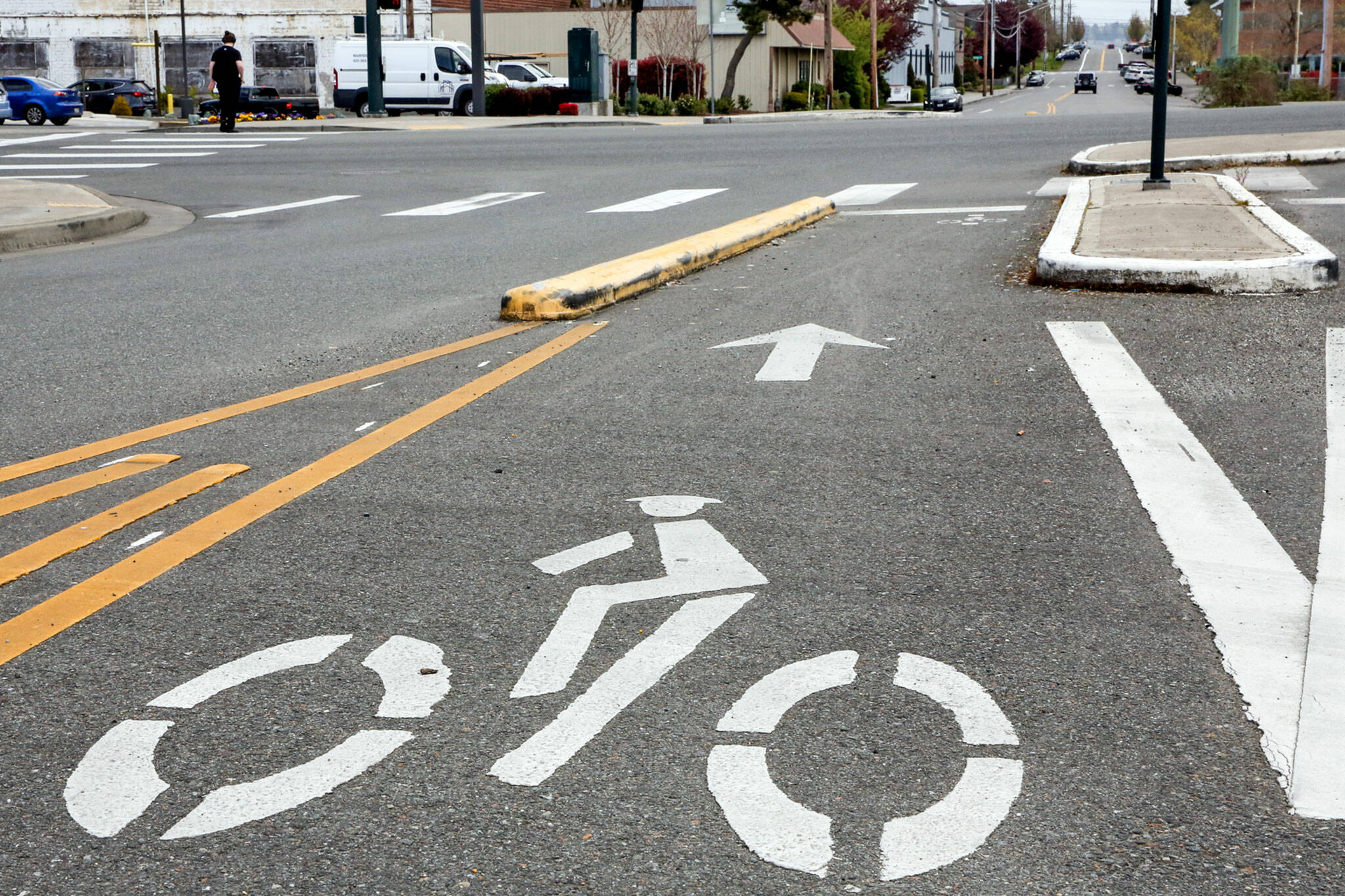By The Herald Editorial Board
It’s not easy filling a $2 billion hole; even when spread out over 16 years.
That’s the task set before state lawmakers — on top of other legislative priorities that must be completed by Thursday — as House and Senate work to adopt a $16.8 billion, 16-year Move Ahead Washington transportation budget that aims to make major investments in highway and bridge maintenance, major transportation projects, work to fix salmon-blocking culverts and other environmental programs and projects to bolster public transit and make travel safer for pedestrians and cyclists to encourage that climate-friendly option.
Democrats who devised the revenue and spending package might have thought they had a clever way of paying for the package that avoided an increase in the state gas tax for most motorists; as bad as adding to the state’s 49.4-cent-a-gallon tax sounded a couple of months ago, it would have been a political impossibility now with the cost of oil and gas rising along with international tensions. (Thanks, Vlad.)
But even shifting a modest gas tax to out-of-state motorists was — as proposed with a 6-cent-gallon tax on fuel exported by refineries in the state across state lines — rejected shortly after first proposed, first by the governors of western states, particularly Oregon, and then by the House with its adoption last week of the transportation budget. The export tax — and about $2 billion in revenue from the package — was gone.
House Democrats proposed a replacement, but that too has raised objections and some counter proposals.
The House package suggests taking $100 million a year from a state trust fund that is used by counties and cities for low-interest loans for public works projects. Lawmakers have siphoned off money from the public works fund before, but it’s an unpopular move, naturally, with cities and counties who rely on it to complete road, sewer and other infrastructure projects that would otherwise require them to use their bonding capacity, with increased costs for their taxpayers.
Instead of using the public works fund, Sen. Marko Liias, D-Everett, chairman of the Senate transportation committee, is eyeing a different fund to replace the export fuel tax, the state’s Model Toxics Control Act fund. As reported Friday by The Herald’s Jerry Cornfield, Liias has proposed redirecting 45 percent of the state tax on hazardous substances, which supports the fund, toward programs in the transportation budget, specifically those intended for bus transit and pedestrian walkways and bikeways, an estimated $2.3 billion over the plan’s 16 years.
But that idea isn’t without its drawbacks. The fund, MoTCA for short, supports the investigation, cleanup and prevention at sites contaminated by hazardous materials, protecting public health, fresh water and other natural resources and the environment. Run by the state Department of Ecology, the fund since its creation by citizen initiative in 1988, has cleaned up more than 7,400 sites, yet still has a list of some 13,700 known or suspected contaminated sites to address. Nearly halving its funding for 16 years won’t come without an impact on its effectiveness.
Another option: Republicans, previously, have suggested using the revenue generated by the excise tax on the sale of motor vehicles to support transportation projects, although Democrats have opposed diverting that revenue from the state’s general fund.
Yet another option would be to pare back the spending in the package itself, but that would cut into important projects that would force difficult decisions on what to cut.
Along with long-sought highway, bridge and transit projects in Snohomish County, including the U.S. 2 trestle, the package allocates $3 billion toward an estimated $8 billion backlog of highway and bridge maintenance and preservation work; $3 billion in transit funding; $1.27 billion for pedestrian and bicycle projects; $1.1 billion for the state ferry system, including four new hybrid electric ferries; $2.6 billion in new projects including $1 billion for the state’s share of a new I-5 crossing at the Columbia River; and $1.4 billion in funding for existing projects, including work on I-405, Highway 520 and I-90 at Snoqualmie Pass.
Having come this far, it’s unlikely that state lawmakers will altogether abandon a transportation package. At the same time however, lawmakers should press for a revenue solution — as imperfect as it may be — that avoids cutting into the $16.8 billion list of improvements and public works it set out to complete from the start.
Over the course of the package, between now and 2038, Washington state will need to make transformative changes to its system of moving people and goods by private vehicles, freight trucks, ferry, bus, rail, bicycle and foot that meaningfully limit greenhouse gas emissions and moves Washington ahead.
Talk to us
> Give us your news tips.
> Send us a letter to the editor.
> More Herald contact information.

























